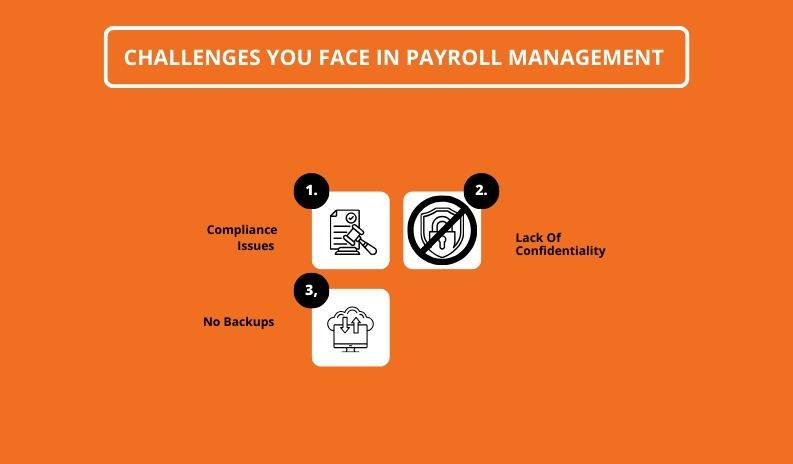5 Effective Tips for Payroll Success & Some Challenges
by Ankita Tripathy Business Published on: 24 March 2022 Last Updated on: 12 May 2025

Every business owner knows that figuring out how manage the payroll process to successfully can be challenging and frustrating.
It might sound like a simple and efficient process, but this is not always the case. Processing payroll is indisputably one of the most important parts of your business.
Below, you can read about the steps to improve the process, optimize, and simplify your payroll tasks. With a special focus on management and ensuring payroll success.
Checkout 5 Effective Tips for Payroll Success:
Payroll management software arrays are simply amazing. They can help you manage so many things at the same time. They are known to improve work efficiency and bring in more money.
Here are some of the most effective benefits of Payroll Operations in Small Businesses that are noteworthy and worth mentioning.
Here we go!
1. Automate the Process
There’s nothing wrong if you are still processing payroll manually. However, if your business grows and more employees join your team, the manual methods might become burdensome. Consequently, you should consider other options to make the payroll process as efficient as possible.
For instance, you might consider using a payroll app to automatically file and send payroll tax payments, track time and attendance, and do direct deposits.
An app will also allow you to run payroll as many times as you like, and the process is made incredibly efficient if you’re running a remote team and making weekly payments.
By automating time-off requests and other data entries, a company’s payroll department can focus on overcoming obstacles or performing other, more important tasks.
2. Create a Payroll Calendar

To stay on track when processing payroll, you might want to create a payroll calendar to keep on top of your pay periods, expenses, and mileage claims, manage tasks that must be realized by the end of each month, as well as keep an eye on commission payments cut-off dates.
When you create your payroll calendar, you will have a clear picture of what must be done and by what date.
A payroll calendar also helps payroll staff to plan and execute payroll tasks and reduces employee confusion about when they’ll be paid. As you create a template for the calendar, save it and update it whenever necessary.
3. Proper Training
As the payroll management process constantly evolves, it’s not uncommon to see changes in federal and state laws.
Payroll staff must continually educate themselves in their role and obligations and stay up-to-date on technology processes, demands, and other related payroll services.
Professionals in this field must keep track of all laws governing payroll processing and deduction rules, and have an in-depth knowledge of the tax procedures if they want to effectively carry out payroll management services.
4. Document Your Payroll Process

This is not the most exciting thing for an employee, but documentation is vital when paying your employees.
To begin, you must thoroughly document your entire process. Try to keep a record of each step, and each month, as this will be useful in the event of an audit or dispute.
Regardless of whether you document important details on employees or a standard payroll processing manual for the payroll department, keep all this information together in a centralized hub.
Another important tip is to document your steps when printing and filing payroll registers and tax reports, including the names of the people receiving payments.
5. Ensure Good Communication

Being professional and knowing all the regulations and rules isn’t enough.
To achieve payroll success, you must engage in consistent and clear communication, which business owners often overlook.
This also applies to proper communication of payroll procedures.
Challenges You Face In Payroll Management

Payroll management is a very nuanced thing to master. Yes, there are several benefits of managing your payroll for small businesses. However, it is easier said than done.
Since we are already on the topic of payroll management, let us take some time to look at some of the challenges you can face.
This should help you approach the conversation in a more informative manner.
Let’s go!
Compliance Issues
The foremost challenge you might face is compliance issues. The laws and regulations governing payroll are never simple. They are deliberately made complex to safeguard the financial side of things.
As a result, you might often run into trouble with payroll management. In case, the HR official in charge fails to include details or incorrectly calculates data, the result can be catastrophic. For this reason, many businesses often find that outsourcing to a reliable payroll service provider can alleviate administrative burdens, reduce errors, and help maintain compliance with local regulations.
Lack of Confidentiality
Technology has made our lives easier. However, it has also played a huge part in taking away our privacy. As a result, payroll management has become all the more difficult.
Payroll should be a confidential process. Therefore, losing this primary essence can prove devastating. Luckily, there are HR Software extensions that can provide minimal protection.
However, that will never be enough. As a result, you might often run into trouble regarding this one small issue.
No Backups
Another massive challenge you might face while managing the payroll data of small businesses is the lack of backups. This is a major problem for the payroll department as loss of data can even lead to lawsuits
Therefore, make sure to avoid this and start backing up data. Otherwise, you might have to lose a lot of money and even run into legal troubles.
Is it Viable?
So, a good approach would be to create a process manual for payroll and ensure that employees who handle payroll at all levels can access this manual at all times.
It’s also worth noting that people associated with the payroll department must always be accessible as employees must directly contact someone to discuss issues or discuss questions related to payroll and the processes implemented. When clear communication is established, payroll issues will be minimized and eliminated.
If you haven’t done this yet, make sure that communication needs include information regarding company procedures, handling payroll errors, employee reporting responsibilities, and how the entire payroll process functions. Put these policies in writing and distribute written copies to each of your employees.
Final Words
To ensure payroll success, you must stay agile and automate the process, stay informed on the latest rules and regulations, and ensure good communication. These tips will help you to carry out the payroll process smoothly without any trouble.
Read Also:



































































































